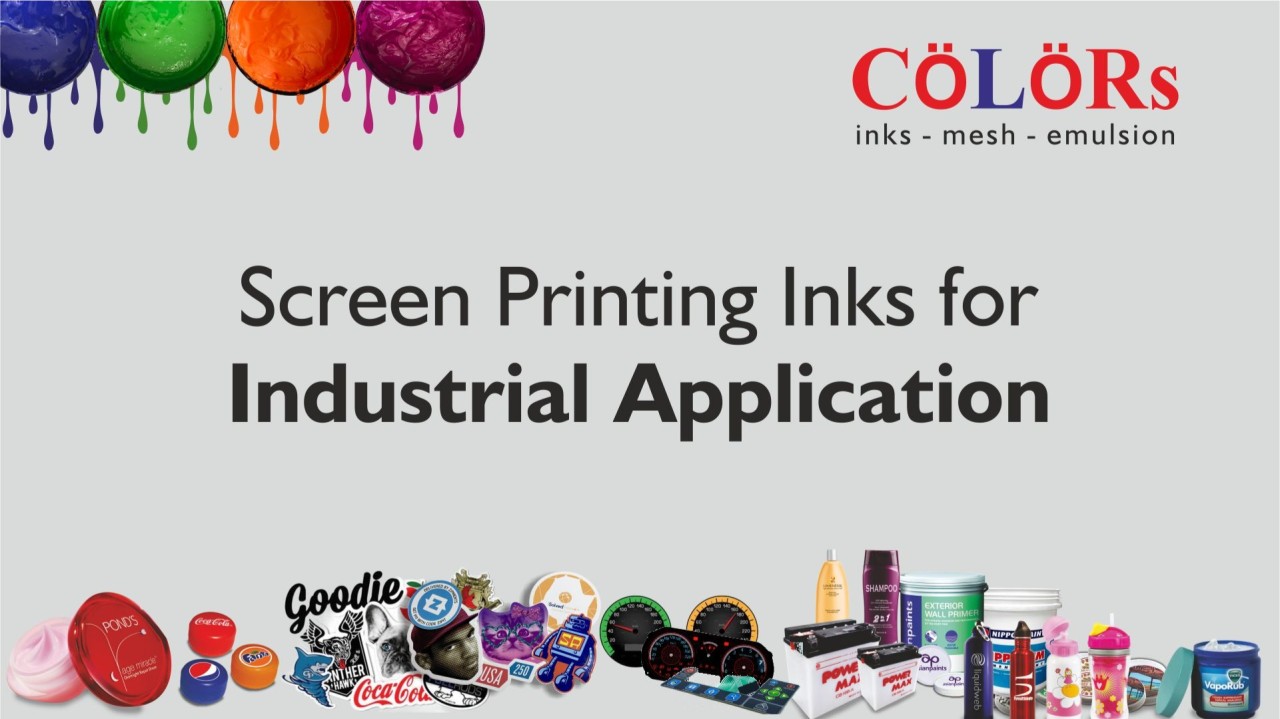Screen printing is a time-tested technique that has evolved to meet the demands of various industries. While often associated with textile or graphic printing, screen printing inks have carved a vital niche in industrial applications. From automotive dials and decals to electronics, toys, ceramics, containers and plastic-molded products, screen printing inks offer durability, flexibility, and accuracy, making them indispensable in modern manufacturing. In this article, we will explore the diverse applications of screen printing inks across different industrial sectors.
1. Automotive Industry: Precision and Durability
In the automotive sector, screen printing inks are used for marking and decorating components such as dashboards, control panels, displays and decal stickers. The inks are engineered to withstand harsh conditions like heat, UV exposure, and abrasion, ensuring long-lasting performance. With the shift toward electric vehicles (EVs), screen printing is also crucial for printing conductive inks for electronic circuits, sensors, and touch panels embedded in vehicle systems.
Key properties required for automotive screen printing inks include high adhesion, chemical resistance, and flexibility. UV-curable inks are getting popular for automotive applications, providing fast curing times and exceptional durability.
2. Electronics: Conductive and Insulating Inks for Precision
The electronics industry heavily relies on screen printing for producing circuit boards, sensors, and flexible electronic components. Conductive inks made from silver, copper, or carbon are used to print electronic circuits, enabling miniaturization without compromising performance. Screen printing offers the precision needed for the intricate designs of modern electronic devices.
In addition to conductive inks, insulating and dielectric inks are used to coat and protect delicate circuits. These specialized inks ensure that electronics can function reliably in varying environmental conditions, making them suitable for devices such as smartphones, wearables, and home automation products.
3. Toys: Aesthetic Appeal with Functional Coatings
Screen printing inks are widely used in the toy industry, not only for aesthetic purposes but also for providing protective and functional coatings. Toy manufacturers use screen printing to decorate plastic parts, apply logos, and create bright, colorful designs that appeal to children.
In addition to aesthetics, certain toys require functional coatings that provide anti-slip surfaces, enhance durability, or offer UV resistance to prevent color fading. Specialty inks such as glow-in-the-dark, metallic, or thermochromic and photochromic (color-changing) inks further add to the appeal of toys, creating interactive experiences for users.

4. Ceramic and Plastic Molded Products: Durability with Decorative Precision
Ceramic, container and plastic-molded products also benefit from the versatility of screen printing inks. In the ceramics industry, decorative screen printing inks are used to create intricate designs on tiles, tableware, and decorative items. The inks are formulated to withstand high firing temperatures, ensuring that the prints maintain their vibrancy and durability even after repeated use.
For plastic molded products, screen printing offers an efficient way to decorate and label items such as containers, packaging, and household goods. The inks used must exhibit excellent adhesion, especially for materials like polypropylene and polyethylene, which are challenging to print on. UV-curable and solvent-based inks are popular choices in these industries due to their fast drying and resistance to wear and tear.
5. The Future of Screen Printing Inks in Industrial Applications
As industries continue to innovate, the demand for advanced screen printing inks is on the rise. In the automotive sector, the growing adoption of electric vehicles will drive the need for conductive inks to print lightweight electronic components. The push for sustainability across all industries will also encourage the development of eco-friendly and water-based inks that maintain performance while reducing environmental impact.
Moreover, the rise of smart technologies and the Internet of Things (IoT) is creating opportunities for screen printing in producing printed electronics for sensors, RFID tags, and other smart devices. This advancement could revolutionize the way screen printing inks are used in industrial applications, transforming the production of everyday products.
Summary
Screen printing inks have proven to be versatile, durable, and adaptable to the unique needs of various industries. From automotive components to electronics, toys, ceramics, and plastic products, the ability of these inks to withstand extreme conditions while delivering precise, high-quality prints has made them essential in modern industrial manufacturing. As technology continues to evolve, screen printing inks will likely play an even greater role in creating the innovative products of tomorrow.
Article by Dr. Mustafa Kapadia


